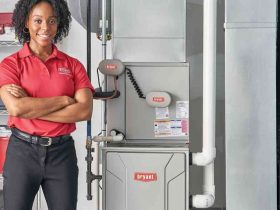In the fast-paced world of technology, it is better to be unique among everyone. One way to do that is a resume that demonstrates your technical expertise and enthusiasm for your field—a resume known as a rocket resume because it leaves an impression like a rocket shooting up into the sky. And that is why you should prepare a resume like that for you..
If you love to have a job in the tech side, then you must have an impressive resume to take over the interview. But creating one is easier said than done, primarily if you haven’t previously worked in a non-technical role. In this blog post, we’ll cover everything you need to know about writing a rocket resume and CV (resume), so you can easily impress hiring managers during your job search.
Why You Should Have a Rocket Resume
In general, you should have a rocket resume if you are trying to ignite your career and move into a new, high-paying job. But it’s even more critical if you’re trying to break into the tech industry as a non-technical candidate.
Hiring managers are looking for candidates who can hit the ground running and don’t have the time or patience to sift through hundreds of resumes and conduct dozens of interviews to find the right person.
Identifying the Right Opportunities
You need to do some research or networking to find the right opportunities. This will help you identify companies you want to work for and open doors to new job interviews. If you’re new to the job market and don’t yet have a network of contacts, tapping into your social circles is an excellent place to start.
Making Your Resume Shimmer
There are several tips you can follow to make your resume shimmer. Here are some to get you started:
- Use a standard format: Make sure your resume follows a standard format so hiring managers know exactly what to expect. Some industries follow strict guidelines for formatting, such as finance and education.
- Include keywords: Your resume should include relevant keywords for your industry, job, and skills. This will help hiring managers find your resume in a pile and make sure you’re the right person for the job.
- Include your academic achievements: Make sure your resume reflects the skills you gained from your academic achievements. Even if you apply for a tech job, it is okay to add your degree that is not related to the tech.
- Highlight your relevant work experience: If you’re trying to break into a new industry, hiring managers want to know how your previous work experience will help them. Highlight how your past positions helped you gain the skills you need for the job.
- Add numbers: it is good to include numbers in the resume to create an exceptional one. For example, if you were a leader of a 10 person team, you can write it as 10.
- Don’t write long paragraphs: Keep your resume to a single page, and write concise paragraphs. Nobody is going to read a five-page essay about your past job experience.
- Proofread your resume: It’s embarrassing to have an error on your resume and even worse if the hiring manager finds it.
What to Include in Your Rocket Resume
Here are some of the best resume topics to highlight when trying to stand out from the crowd.
- Education: Include your major, the school’s name, and the date you graduated. If you are in school and still have time left, indicate when you intend to graduate.
- Skills: These should be listed at the top of your resume and include programming languages, software, and technical skills.
- Work experience: This includes the name of your previous employers and the number of years you worked there.
- Volunteer work: Include any volunteer work you have done.
Writing a CV That Supports Your Resume
A CV is the same as a resume, but it’s used in other countries. In the United States, the term resume is used to describe your CV and cover letter.
- Make sure your CV is matched to any job type you are going to apply for.
- Include the contact information (telephone number, address, email, name).
- Use a standard font, such as Calibri or Times New Roman and use the font size of 12.
- Include your academic achievements and any awards or honors you have received.
- Highlight your relevant work experience. – Include a section for relevant skills and interests.
- Make the CV into two pages.
Conclusion
When writing a rocket resume, remember that hiring managers are looking for reasons to rule you out—not reasons to hire you meaning you must prove you are skillful and have the experience they’re looking for. With a rocket resume, you’re more likely to get an interview and a chance to prove yourself.







Leave a Reply